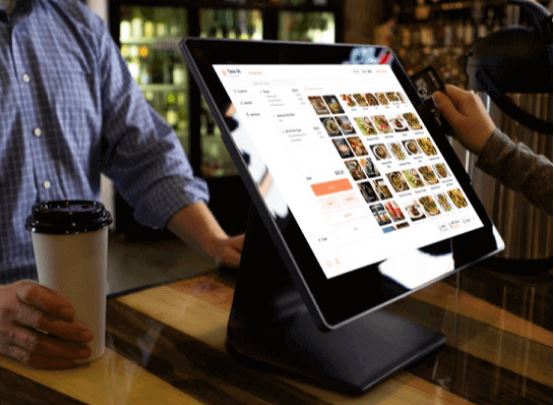
What are the features of a good restaurant management software?
The entire stack of technology, restaurant software, and marketing modules required for the effective management of food industry operations makes up a restaurant management system. It takes over the company’s services and marketing. Here are some aspects of restaurant management software you must have if you decide to invest in such a system for your business.
1. Online restaurant management using the cloud
2. Simple Menu Config
3. Tax and sales tracking
4. Inventory Control
The fifth is integrated credit card processing.
Simple Order Processing, Number Six
Loyalty and incentive schemes
8. Personnel Administration
9. Extensive and Reliable Reporting
10. Integration of Gift Cards
Outstanding Technical Support
12. Complete Instruction
How to prepare a restaurant for Online Ordering System ?
Online ordering system is the technology that offers the ability to put a takeout food order through a food delivery app clone or website or third party app, either on a desktop or smartphone.
White label restaurant software collects all the fundamental data about the order and permits a restaurant to receive and deal with these orders through their POS either directly or indirectly.
Most direct white label restaurant software is additionally furnished with integrated payments so users are able to pay their order online once placing it. Whether you decide to go with direct food ordering on your website, a third party food ordering app, or a mix of the two, it’s clear that an online food ordering system can have some significant advantages for your restaurant.
The first step while creating the food delivery app has to be investigating the market and identifying individuals whom you need to target. Working experts, students and entrepreneurs usually use the apps.
Thus, you have to initially investigate the market and afterward target them. It’s essential to pick the perfect technology before you think to develop an online ordering system for the food business as per the requirements, features and budget.
Advanced tools you’ll utilize, for example, API’s, SDK’s and food delivery app clones, the more you need to pay. You have to give a customized touch to the food delivery app as far as quick payment options, menu preparing, and order selection.
You have to make an user friendly swiggy clone app for all users like restaurants, delivery executives and customers. You can either make three separate logins for them or create three apps.
What are the benefits of restaurant management software?
Running a restaurant is a complex business. Using restaurant management software helps streamline your operations so you can become efficient as your business generates the most revenues.
Here are the benefits of using such software:
- Accurate inventory: Inventory management is time-consuming and daunting, especially if you don’t have a system in place. Restaurant management software can help by automatically tracking your inventory levels and sending alerts when items need to be restocked. This way, you’ll always know what you have on hand and avoid overordering or running out of supplies.
- Efficient fulfillment of customer orders: It’s important to keep track of customer orders to ensure accuracy and quality control. With restaurant management software, you can do just that. The software will keep track of customer orders from start to finish, so you always know where things are at and can follow up as needed. It also avoids delays in serving customer orders resulting in increased customer satisfaction.
- Organized employee schedules: Employee scheduling is another important—and often time-consuming—part of running a restaurant. With restaurant management software, you can create employee schedules quickly and easily. The software can also track employee availability and handle shift swaps or requests off seamlessly. This way, you can spend less time scheduling and more time focusing on other aspects of your business.
- Accurate supplier orders: Besides inventory management, restaurant management software can help order raw materials from vendors. The software can keep track of vendor information and prices, so you can quickly and easily place orders when needed. It can also generate purchase orders and track payments, so everything is in one place.
- In-depth analysis: Restaurant management software can track every aspect of running your business – from customer sales to actual inventory used. It can help you determine the success of marketing campaigns and discover customer behaviors. It can even help reveal seasonal trends and make accurate forecasts.
- Improved customer relationships: Most restaurant management software also has a CRM (customer relationship management) feature that allows you to run loyalty and rewards programs, manage customer profiles, and more. This information helps you provide better customer service and conduct personalized campaigns leading to customer loyalty.
- Enhanced productivity: Finally, restaurant management software drastically improves your team’s productivity. From reducing errors due to handwritten orders to automated reports generation, this software saves time and helps your staff focus on what’s important – delivering great quality food with exceptional customer service.
How do I choose the best POS for a restaurant?
There are a few key factors to consider when choosing a point-of-sale (POS) system for a restaurant:
- Cost: Make sure to consider the upfront cost of the POS system as well as any ongoing fees, such as monthly or annual charges.
- Functionality: Consider the specific needs of your restaurant, including the type of payment processing you need, the ability to manage tables and reservations, and the ability to track inventory and sales data.
- Ease of use: Choose a system that is user-friendly and easy for your staff to learn, as it will make training and daily use more efficient.
- Customer service and support: Make sure the company offering the POS system has good customer service and technical support, as you will likely need help at some point.
- Compatibility with other systems: If you have other technology systems in place, such as a kitchen display system or online ordering platform, make sure the POS system is compatible.

